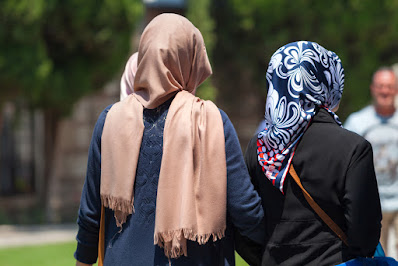
Scholars have specified the requirements of the Muslim woman's proper dress before al-ajaanib (lit. foreigners, i.e., those to whom marriage is permissible) from both the Glorious Qur'an and the sunnah. Once a woman adheres to such conditions, she can wear whatever she likes and go out into public places so far as her hijab complies with Islamic law. A summary of the requirements are as follows:
- 1: It should cover the whole body.
- 2: It should be thick enough, i.e. non-transparent or translucent.
- 3: It should be loose and not tight on her body.
- 4: It should not be decorated or ornate such as to attract onlookers.
- 5: It should not be perfumed.
- 6: It should not be considered libaas al-shuhrah.
- 7: It should not resemble the dress of men.
- 8: It should not resemble the dress of the unbelievers.
- 9: It should not bear crosses or depictions of anything with a soul (humans, animals, etc).
This is a summary of the requirements according to the Islamic shari'ah.
That's the beauty of Islam
ReplyDelete